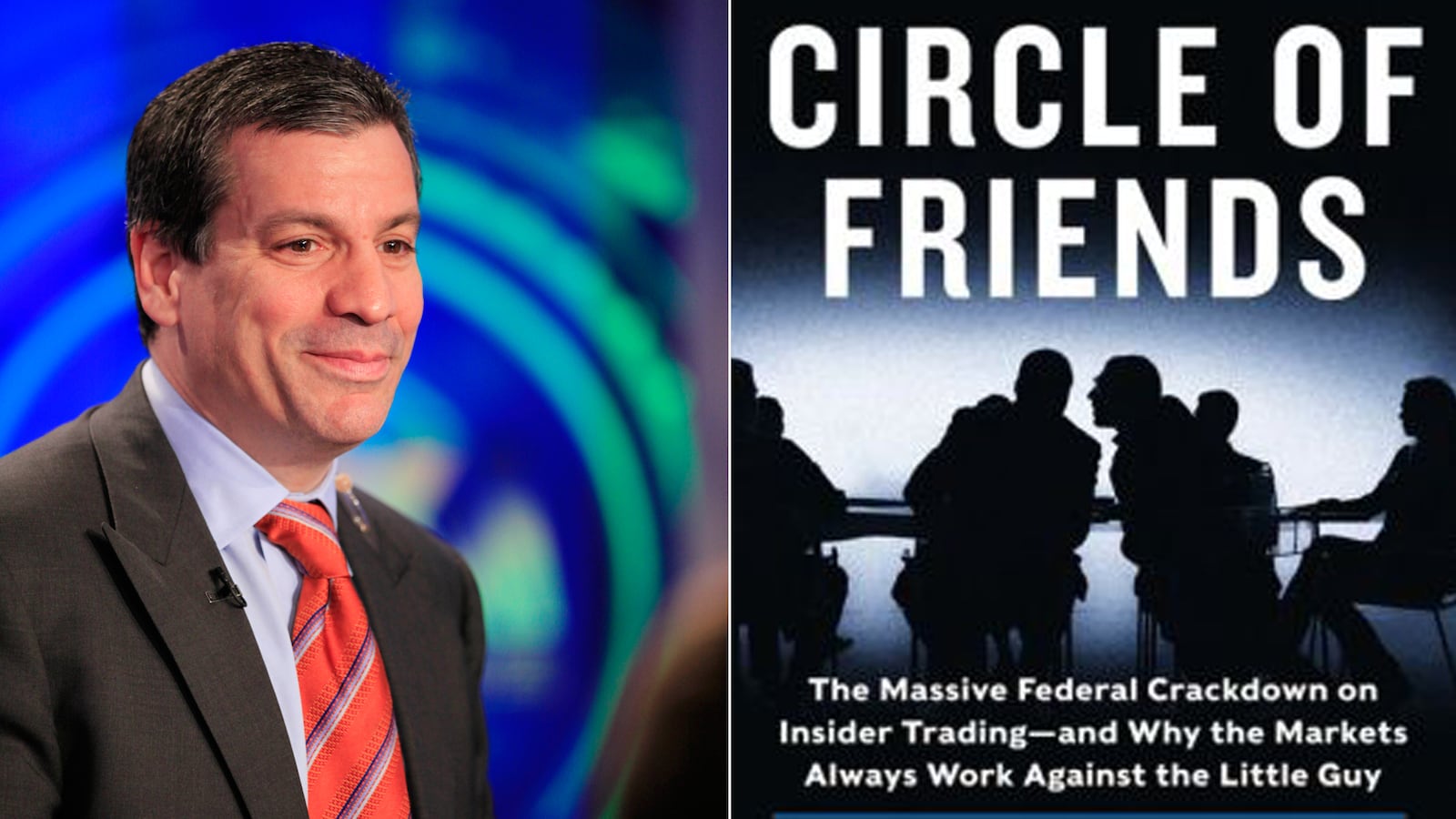1. The Government Is a Big Bully.
Gasparino explicitly says he’s not defending insider trading. But he does argue that the U.S. government wastes resources by pursuing insider trading to the extent it currently does, and that its prosecutors often treat white-collar suspects like mob bosses. When the FBI finally confronted Galleon Group hedge fund billionaire Raj Rajaratnam in 2009, they told him “to look at his children because it could be the last time he’d see them for a long time” and that he should also look at his wife because she’ll have a great time spending his money while he’s in jail. Embarrassed by a failed case in the early 2000s involving Art Samberg, the head of Pequot Capital, prosecutors have pursued a scorched-earth strategy against investors. And since penalties for white-collar crime have gone up in recent years, prosecutors can threaten their prey with sentences that are potentially longer than those given to convicted rapists. The government has also expanded the use of wiretapping—a tactic formerly used to bust Mafiosi and terrorists—to pursue insider traders.

2. Paris Hilton – Market Mover?
When confronted by FBI agents, Rhoomy Kahn, a Silicon Valley–based consultant who peddled insider tips to investors like Rajaratnam, initially claimed that she made a large purchase of Hilton Hotels stock because of Paris Hilton’s exploits were generating an enormous amount of press and investor attention for the company her ancestors founded. In the end, Kahn copped to making the move on a tip about Blackstone’s takeover from an analyst named Deep Shah.
3. A Seer Foretold Rajaratnam’s Betrayal.
Raj Rajaratnam, founder of the hedge fund Galleon Group, pursued a Wall Street lifestyle. But his sister Vandani became enamored with mysticism. In 2007 she called Rajaratnam and told him that a psychic “told her that a woman with a mole on her face, an Indian woman at that, was going to betray him.” When he was arrested, Rajaratnam remembered that Roomy Kahn, whose cooperation helped the government get a wiretap on Rajaratnam, had a facial mole.
4. FBI Superagents
A large portion of the book focuses on the talented FBI agents Richard Jacobs, David Chaves, B.J. Kang, and David Makol, who are considered among the best at getting targets to flip and turn informant. All four had experience in the fascinating domino effect that happens in insider-trading rings as criminals turn on each other. Chaves and Makol were something out of a buddy cop movie, with Chaves known as the “velvet fist” for his success at extracting information by being nice, while Makol, who is referred to as an “asshole,” was known for surprising targets while out walking the dog or eating at a restaurant. Kang, who worked on Jacobs’s team, was an ice-cold operator who would never yell or intimate the violence that awaited in prison to flip an informant, but rather just simply lay out the choices: a productive life after cooperation compared with a disrupted life if the suspect fought and lost. And Gasparino’s book does a good job detailing the difference between cooperating (potentially no jail time, a fine, and community service) versus not cooperating or pleading not guilty (increased jail time and penalties).
5. What People Do When Confronted
Gasparino details individual reactions when they first are confronted by the FBI. Some people, agents told the author, can’t control their bodily functions. Some plead with the FBI to let them go. Others apparently faint. Some, like Rhoomy Kahn, tell a lot of lies and then burst into tears. David Slaine, a former big-time trader who became one of the FBI’s biggest informants, reacted calmly and acquiesced to the FBI’s demands after assessing the pros and cons. Dani Chiesi, a glamorous trader and Rajaratnam associate, was arrested and paraded in front of cameras sans makeup. And there was in fact somebody who fainted—Anil Kumar, a former McKinsey & Co. executive vice president.
6. Bernard Madoff
Gasparino stresses that insider traders often don’t hurt individuals the way a swindler like Bernard Madoff did. While the SEC and the FBI were devoting prodigious resources to pursuing insider trading at hedge funds, Madoff and his multi-billion-dollar Ponzi scheme went unchecked, despite several encounters with the SEC. Madoff, whose schemes cost investors almost $50 billion, essentially turned himself in. And the reason the SEC offered as to why Madoff had operated for so long unnoticed? The agency’s personnel were stretched too thin.
7. Octopussy
One of many eye-roll-inducing details that surface about the insider culture of finance was the nickname of a young trader who in his insider-trading circle was known as “Octopussy” because of the number of sources and friends he had (thus no relation to the James Bond villain). Zvi Goffer was the young trader who earned that moniker, and his brash arrogance shocked agents as he was brazenly open with his methods of how to cheat the system.






